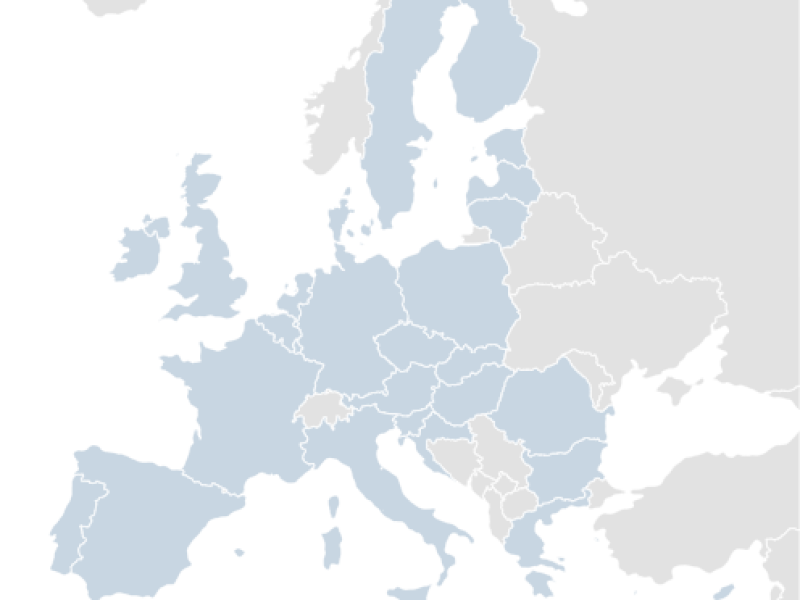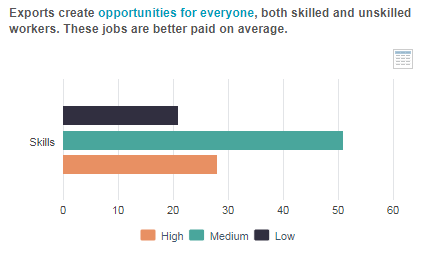Trade means jobs
This programme aims to engage young people from across the EU, raising awareness about the practical implications of EU trade policy and letting stakeholders know how they can provide input into policy decisions which affect them and their communities.
Trade policy sets the direction for trade and investment in and out of the EU and affects businesses and individuals across EU member states and beyond. From agriculture to cars, successful trade policy leads to increased exports and employment across the EU. It keeps down costs for businesses and consumers of the products they need from abroad and it enables more than €5 trillion a year in inward investment.
Trade policy can also be an effective means of sharing and promoting European values through our trade agreements and the almost €7 trillion of EU investment with partners in the rest of the world.
In short, trade policy has a big impact on every business and citizen in the EU. And as such it is vital to ensure that stakeholders from all EU member states and all sectors of society are able to participate.
EU exports support 36 million jobs, up two thirds from 2000. Nearly 14 million of these workers are women.
1 in 7 jobs in the EU depends on exports.
EU exports support a significant share of jobs in all countries across the EU.
Exports create opportunities for everyone, both skilled and unskilled workers. These jobs are better paid on average.
Thanks to the EU Single Market, one fifth of the export-supported jobs are located in a different Member State than the one exporting.
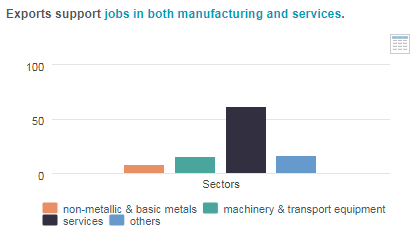

EU exports support a significant share of jobs
in all countries across the EU.
EU exports support 20 million jobs outside the EU, including many in developing countries.
In 2017, EU exports to the world are more important than ever, supporting 36 million
jobs in the EU. On average each billion euros of extra-EU exports supported more
than 13,000 jobs in the EU.
Export-related jobs are, on average, 12% better paid than other jobs in the rest of the
economy. The export wage premium ranges from 10% to 18%, depending on the
workers’ skill level and occupational profile.
European workers from all Member States benefit from EU exports. These job
opportunities emerge not only because exporting firms are expanding sales outside
the EU but also because firms supplying goods and services to exporters also sustain
millions of jobs along respective supply chains within the Single Market.
These upstream jobs may be located in the same Member State or elsewhere in the
EU. On average, almost one fifth of the jobs supported by extra-EU exports are
facilitated by the EU Single Market.
With the expansion of global value chains, EU exports support more and more jobs
not only in the EU but also in our trading partners. Almost 20 million jobs beyond
the EU are supported by EU exports, thanks to EU firms participating in global
supply chains.
We welcome @PhilHoganEU as EU Commissioner for Trade. #EUtrade pic.twitter.com/DgXK1I3jza
— EU Trade 🇪🇺 (@Trade_EU) December 2, 2019

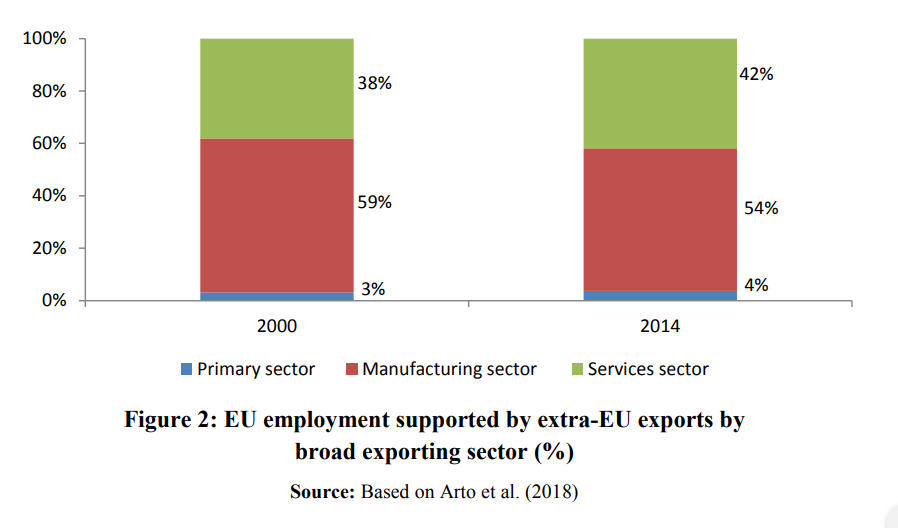
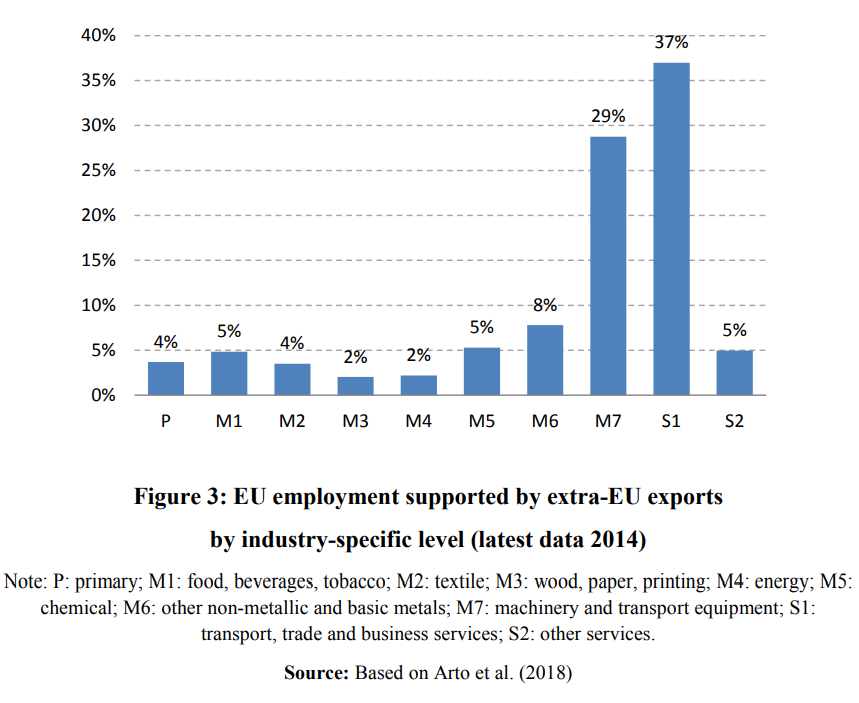

With Member States today we committed to a stronger partnership on implementation so that our companies especially #SMEs can fully benefit from our trade agreements https://t.co/3RnnGjXwJs #EUtrade pic.twitter.com/2aylmRmF1t
— EU Trade 🇪🇺 (@Trade_EU) November 21, 2019
EU Member States export goods and services all around the World. These exports generate jobs and income not only in the exporting countries but also elsewhere. For instance, Germany exports automobiles to Japan, but many of the cars’ parts are produced in other countries, supporting and generating jobs and value added in those economies.
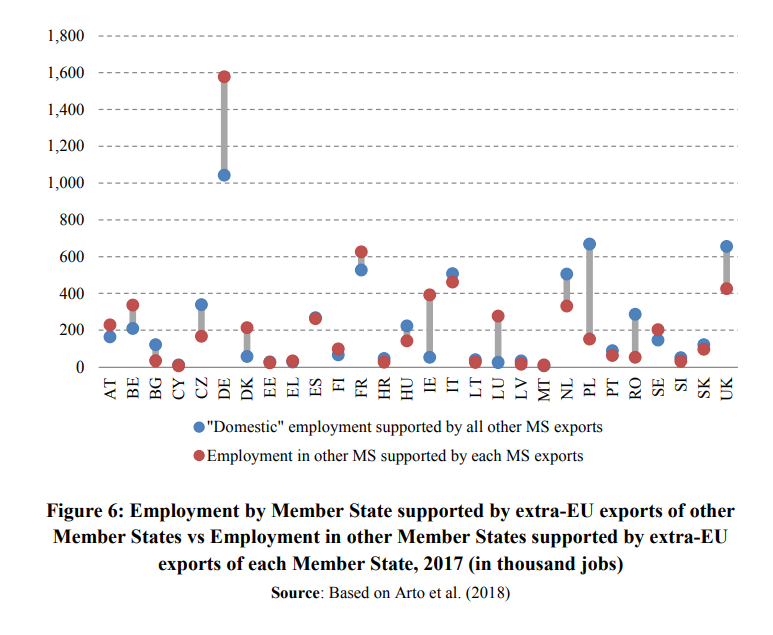
Effects on Greek Economy
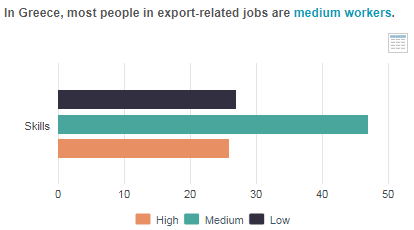
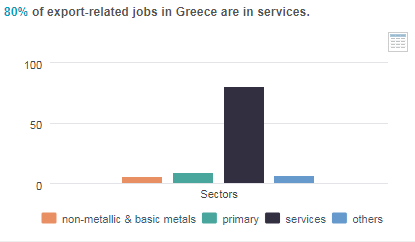
Greek companies’ exports outside the EU are worth €24 billion in 2017.
And this keeps 456 thousand Greek workers busy…
Exports from Greece to countries outside the EU support
427 thousand jobs in Greece.
Another 29 thousand Greek workers are in jobs linked to exports
from other EU countries to countries outside the EU.
This means 11 % of jobs in Greece depend on EU exports.
Greek exports to countries outside the EU also support over
33 thousand jobs in the rest of the EU.
Exports create opportunities for everyone.
Exports keep the Greek services industry strong.
EU Trade Statistics 2018
Commission reinforces tools to ensure Europe's interests in international trade
At 12 December 2019, the European Commission unveiled a proposal that will allow the European Union to protect its trade interests despite the paralysis of the multilateral dispute settlement system in the World Trade Organization (WTO). To further increase the focus on compliance and enforcement of the EU’s trade agreements, the Commission created today the position of Chief Trade Enforcement Officer.
President of the European Commission, Ursula von der Leyen, said: “A stronger Europe in the world implies efficient EU leadership on global trade and appropriate powers to ensure that international trade rules are respected. For that reason, I start my mandate by taking swift action to strengthen our trade toolbox. Today’s proposals will let us defend our interests in these particularly uneasy times for international trade. As many European jobs are at stake, the EU needs to be equipped to ensure that our partners respect their commitments and that’s what this proposal aims for.”
Commissioner for Trade, Phil Hogan, said: “This is a critical moment for multilateralism and for the global trading system. With the Appellate Body removed from the equation, we have lost an enforceable dispute settlement system that has been an independent guarantor that the WTO’s rules are applied impartially. Whilst we seek to reform the WTO and re-establish a well-functioning WTO system, we cannot afford being defenceless if there is no possibility to get a satisfactory solution within the WTO. The amendments we propose will allow us to defend our companies, workers and consumers, whenever our partners do not play by the rules.”
Today’s proposal to amend the existing Enforcement Regulation comes as a direct reaction to the blockage yesterday of the operations of the WTO Appellate Body. The current regulation – a basis under EU law for adopting trade countermeasures – requires that a dispute go all the way through the WTO procedures, including the appeal stage, before the Union can react. The lack of a functioning WTO Appellate Body allows WTO Members to avoid their obligations andescape a binding ruling by simply appealing a panel report.
The Commission’s proposal will enable the EU to react even if the WTO is not delivering a final ruling at the appellate level because the other WTO member blocks the dispute procedure by appealing into the void.
This new mechanism will also apply to the dispute settlement provisions included in regional or bilateral trade agreements to which the EU is party. The EU must be able to respond resolutely in case trade partners hinder effective dispute settlement resolution, for instance, by blocking the composition of panels.
In line with the Political Guidelines of President von der Leyen, the Commission is further reinforcing the Union’s tools to focus on compliance and enforcement of the EU’s trade agreements and created the post of Chief Trade Enforcement Officer that will be filled in early 2020.
Ensuring the respect of the commitments agreed with other trade partners is a key priority of the von der Leyen Commission. The EU is therefore increasing its focus on enforcing its partners’ commitments in multilateral, regional and bilateral trade agreements. In so doing the Union will rely on a suite of instruments. The proposal presented today will now be subject to validation by the European Parliament and the EU Member States in the Council in a normal legislative process.
For More Information
For over 70 years the world has built up a solid set of laws and rules for trade. These are now under threat because the system for settling trade disputes between countries is about to collapse.#EUrules #EUtrade pic.twitter.com/kI1suq6EdW
— EU Trade 🇪🇺 (@Trade_EU) December 9, 2019
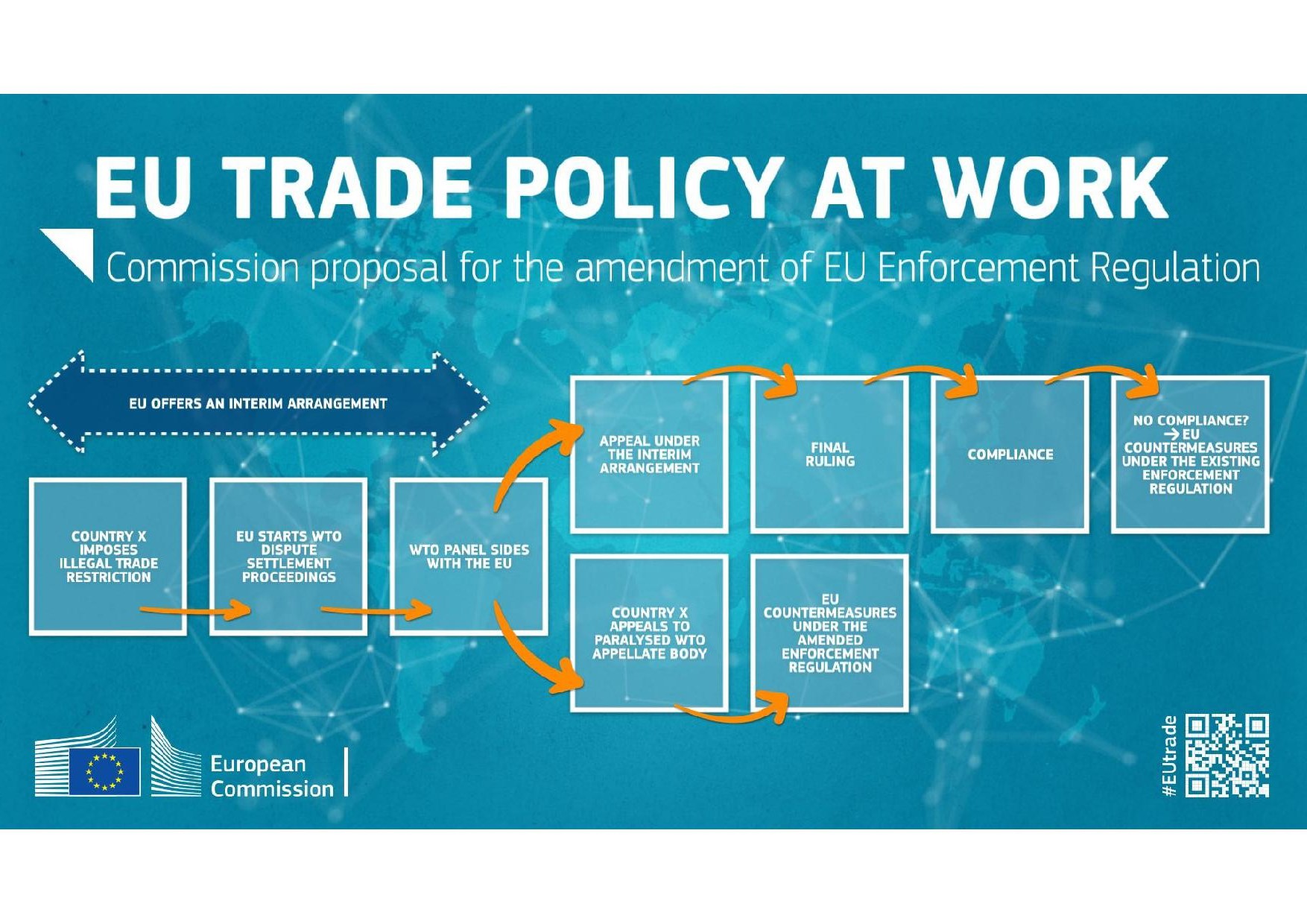
#EUTrade is economic, environmental and social. https://t.co/n5QvJCpP4M #EUtrade #EUvalues pic.twitter.com/riqF3ooWE8
— EU Trade 🇪🇺 (@Trade_EU) December 4, 2019
The EU is committed to rules based trade #EUtrade #EUrules https://t.co/n81Smay0b3 pic.twitter.com/aLiOUD8kE2
— EU Trade 🇪🇺 (@Trade_EU) December 3, 2019

